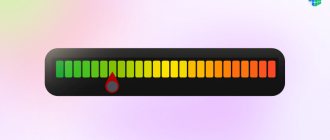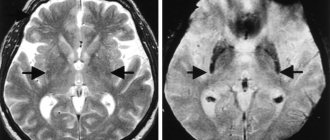11/09/20195 minutes read 1569
When a person, for one reason or another, needs help in solving certain problems and, as a result, improving his life, it is time to turn to a certified psychologist. If you have come to the conclusion that you can no longer do without treatment and help, but do not know who to choose for depression - a psychologist, psychotherapist or psychiatrist, it will not hurt you to know the differences between these concepts.
Mental health professionals provide conversations in a safe environment where you can relax and work through your difficulties. This article should help you clarify the differences between a psychiatrist, psychotherapist, psychologist, and other specialists in the field of behavioral health in general and depression in particular.
Who to choose when treating depression: a psychotherapist, a psychologist or a psychiatrist?
This is not an easy task, but we hasten to please you that it is completely doable.
A good psychiatrist or psychotherapist will make sure to find appropriate therapy, including medical therapy and realistic ways to deal with everyday worries.
How do psychologists treat depression? Psychologists treating depression, including clinical psychologists, provide counseling services during which you can express your feelings and thoughts.
Many people are depressed when faced with mental difficulties. Finding a good specialist who will identify the essence of the problem can confuse you and aggravate your anxiety.
Many psychologists who treat depression are trained and practice cognitive behavioral therapy when working with depression. This is a direction of behavioral therapy aimed at actively searching for and correcting the situation, in which a person learns ways to fix thought patterns with a negative connotation and redirect them in a constructive direction.
Advice If you are faced with a choice of whom to turn to for depression - a psychologist or a psychotherapist, choose a psychotherapist who practices cognitive behavioral therapy or a psychologist with the appropriate qualifications.
Thus, the task of a psychologist or psychotherapist, who to choose for depression, will come down to choosing a psychologist who practices the method of therapy you need.
Common issues addressed by psychologists, psychotherapists and psychiatrists
- Anger management
- Eating disorder
- Treatment of depression
- Stress management
- Obsessive-compulsive disorder (obsessive-compulsive disorder)
- Help with sexual disorders
With the help of a good therapist, the pain associated with the problems listed above will ease and other problems, including depression, anxiety and stress, will become manageable. Without the services of an adequate therapist, it is very difficult to learn to manage your thoughts and feelings in order to quickly change your life for the better.
At an appointment with a good psychologist, you will learn step by step to understand the essence of the therapeutic process. When looking for a psychologist, study the information in which technique a particular specialist works. Make sure you have a graduate degree in psychology.
Start working with a psychologist right now
Start a consultation
Depression: symptoms
Like many other similar conditions, depression is characterized by a set of criteria, the appearance of which is the reason for the formation of a psychotherapy plan. The main symptoms are as follows:
- Severe bad mood, loss of joy in life.
- Loss of interest in activities that recently brought pleasure, loss of meaning in life.
- Negative thinking, a pessimistic view of further developments.
- Despair, melancholy, guilt.
- Inability to concentrate, memory impairment.
- Constant anxiety, fears even when making not very important and responsible decisions.
- Bad dream.
- Loss of vital energy.
- Poor appetite, intense weight loss.
- Physical pain (muscle or cardiac pain).
- Decreased or complete absence of libido.
- Various manifestations of failures of the autonomic system, increased sweating, constipation, etc.
Severe depression is characterized by the appearance of all the indicated symptoms, but some types are associated with certain issues.
Consultation with a psychologist in Moscow and Balashikha
Sign up for a consultation
What is the essence of cognitive behavioral psychotherapy?
Cognitive behavioral therapy is a method of teaching people to change behavior by systematically introducing new positive habits. When using this method of treating depression, the effectiveness of therapy by cognitive behavioral psychotherapists is not in doubt, and is currently the “gold standard” of psychotherapy.
With its help, rational emotional support is provided, the brain is trained, and gets used to new forms of behavior. Talk therapy sessions with a psychotherapist are conducted both in counseling centers and in hospitals and private clinics, as well as online.
Regardless of the location of the sessions, a good psychologist or psychotherapist will take care of a comfortable and safe environment where you can relax and begin to solve accumulated problems and take the first steps to help you get rid of psychological trauma.
If you decide to resort to CP therapy, you will have a chance to learn how to manage symptoms of depression, anger and other destructive feelings. And your treating psychologist will do everything possible to provide the appropriate conditions so that you can truly open up.
Participation in cognitive behavioral psychotherapy is possible either individually or as part of a group with other people. At the same time, certified psychologists working in other areas are allowed to attend sessions.
The benefit of cognitive behavioral therapy is relief from depression and stress.
Anxiety and depression. Often people don't see the difference between these terms. In fact, these are different conditions, but they have something in common - a self-destructive nature.
The consequence of an anxiety disorder is the appearance of restless thoughts, most often illogical. Anxiety disorder is fueled from within, which makes this condition difficult to overcome.
Depression is accompanied by negative thoughts, which only contribute to a worsening state of mind. Depression aggravates the existing disorder, so it is especially difficult for a person during this period.
CP therapy helps get rid of depression and stress: most often the client’s complaints combine both.
The principle of action and treatment is as follows:
With depression, a person rejects or drives away bad thoughts associated with anxiety and depression, this helps to strengthen them, since without recognizing the problem, there is little that can be done about it.
Cognitive behavioral therapy helps to understand and eliminate the side effects of depression, such as intrusive anxious thoughts and insomnia.
Constant practice is the key to success, step by step new positive patterns will become part of your thinking. Depression and other mental health symptoms will no longer have a chance to exist.
Any specialist with a diploma of higher psychological education can practice CBT after appropriate requalification. A psychiatrist can also do this, with only one difference: a psychiatrist can make a diagnosis and prescribe medications, whereas a psychologist does not have such competence. Later in the article we will talk in more detail about the differences between a psychologist and a psychiatrist when treating depression and will help resolve the question of how psychologists and psychiatrists treat depression and where to turn for help.
Check if you have depression
"Beck Depression Test"
Depression counseling
| Lack or loss of meaning in life | Sign up |
| Victim syndrome, low self-esteem, lack of self-confidence | Sign up |
| Psychological trauma | Sign up |
| Breakup crisis | Sign up |
From a psychological point of view, depression is an affective disorder associated with constant fluctuations in the emotional state. A depressed mood, slow movements, and lack of joy in life are characteristic signs. According to statistics, it is precisely this mental disorder that is recorded among the inhabitants of the planet more often than others.
Psychiatrists
Psychiatric help for depression. A psychiatrist has a diploma in psychiatry, often takes part in cutting-edge research related to his specialization, and has a doctorate or advanced degree. It is their responsibility to conduct research on topics of interest to them, together with their colleagues or as teachers in higher education institutions. The work of a psychiatrist includes diagnosing patients and determining treatment methods based on observations.
With the help of these specialists, they provide support and control over the mental state of those who come to the clinic, they direct patients in the right direction, help them make this or that choice, provide support in a difficult situation, and help clarify their feelings to determine the next steps towards recovery. Often the work of a psychiatrist is built in a team together with a clinical psychologist. Since a psychologist cannot prescribe medication, but a psychiatrist has such powers.
Stages
Psychology experts distinguish 5 stages of depression. The first is denial, the final is acceptance. However, such a division is conditional. The duration of each stage cannot be formulated precisely, so it will not be possible to cope with this condition without the help of a psychologist. So:
- Denial . The person does not notice the problem or does not want to notice, and lives the same way as before. Rest requires longer sleep, and sometimes the feeling of hunger becomes uncontrollable. The mood improves somewhat, but it does not correspond much to the real state of affairs. There are bouts of laughter that cannot be controlled.
- Anger . A person senses a problem and tries to find those who are to blame for it. Those around them become guilty: relatives, colleagues and simple acquaintances. Attempts to provide help provoke a violent response - severe irritation and anger. A person understands that he does not control his emotions, and because of this, irritation only intensifies. Frequent scandals, hysterics, sudden changes in emotional background are signs of this stage.
- Bargaining . The person tries to become positive and positive, begins to negotiate with the people around him, and believes that one can cope with the disorder through selflessness and benevolence towards the people in contact with him. This gives a certain influx of strength, but they are not unlimited, and thoughts exceed real possibilities.
- Depression . Main stage. There is no strength to fight, everything looks bleak and hopeless. A person “closes himself off” from the outside world, loses vitality and interest. The emotional background is reflected in the physical state, appetite disappears, sleep becomes light and poor. In the most severe cases, real attempts to commit suicide are recorded.
- Adoption . A person not only understands that he has problems, but also sees their essence, which allows him to determine methods of solution. Things that cannot be corrected are perceived calmly and judiciously, and new “paths in life” are sought. Over time, the condition normalizes, the circle of contacts expands, and new connections appear.
Psychologists
Psychologist's work with depression. Psychologists in their work can practice various areas of work, including in the social sphere. When people talk about a psychologist, they often mean a social worker or a counselor. In this regard, it is possible that they have degrees in various fields, including undergraduate medical education, a doctorate in psychology or a master's degree.
You will find support and support in a psychologist, but their functions differ depending on the level of qualifications and the degree of knowledge acquired. Understanding the main differences between a psychologist, a clinical psychologist and a psychiatrist will be key in finding the right professional, especially for the first time.
If you are wondering whether it is worth going to a psychologist for depression, or you suspect that you have other psychological difficulties, and are faced with the difficulty of choosing a specialist, if you do not want to spend a lot of effort and time, trust Helppoint. Complete the questionnaire and we will select the most suitable psychologist for you. Don’t put the problem aside, start communicating with a specialist right now.
The information presented in this material is for informational purposes only and does not replace professional advice from a physician. If you notice signs of depression, consult a specialist!
Author: Editorial staff of the Help-Point.net portal
Start working with a psychologist right now
Start a consultation
Tags: test depression depression online consultation online psychologist
Share
Comments
- Comments
Loading comments...
Previous article
What kind of psychologist do you need?
Next article
Varieties
The following types of disorder are distinguished:
- Clinical depression , which is also defined as "major". A person’s mood deteriorates greatly, he feels constant fatigue, loses vital energy, and experiences disturbances in sleep and eating patterns. In some cases, it comes to thoughts of suicide. These symptoms remain relevant for several weeks.
- Minor depression . The clinical picture is partially similar to the previous disorder, but 2 or 3 symptoms persist for 2 weeks or more.
- Atypical . Characteristic manifestations are accompanied by drowsiness, excessive appetite and emotional sensitivity, a violent reaction to external stimuli.
- Postpartum . A type that women encounter after the birth of a child.
- Recurrent . Symptoms occur with some consistency. As a rule, once a month and last 3-4 days.
- Dysthymia . Deterioration of mood in a “moderate” form, when the signs of depression are not as severe and intense as in a situation with the clinical type. A distinctive feature is the duration, which in the case of dysthymia is calculated in years. Serious disorders occur against the background of dysthymia.
The disease can also be associated with age; risk groups include the elderly, children and adolescents.
How to behave to loved ones?
Do not ignore the complaints of a depressed person and, especially, do not prohibit them!
Perhaps they will help identify the true cause of the condition. Do not try to cheer him up or remind him of past successes - this will only depress him even more, because his inability to rejoice or clearly understand the picture of what is happening does not depend on him now. But you can remind him that his sad condition is temporary and that if he cooperates with the doctor and takes treatment, he will soon get better! Try not to reproach him for anything and relieve him of all responsibilities as much as possible. Don't let him feel helpless or guilty. But he must take care of himself, perform basic daily toileting, and also regularly visit the doctor - so make sure that these functions are performed.
Why does depression appear and how long does it last?
The occurrence of the disorder is explained by physiological and psychological factors. The second group is the most extensive:
- Finding yourself in a situation that has a traumatic effect on the psyche. A disaster, death of a loved one, violence, dismissal from work or serious injury that limits ability to work and disrupts the usual way of life. The duration of the disorder is 1–2 months, during which time the body adapts and calms down, but in the absence of external professional help, the indicated period is likely to increase.
- Frequent or constant tension. Alcoholism, eternal lack of finances, debilitating chronic illness, lack of contact with loved ones.
- Old psychological trauma. As a rule, our nervous system blocks the stresses that we experienced in childhood. Unfortunately, in adulthood they “pop up” and cause a lot of anxiety, even obsessive phobias.
- Existential crisis. Sometimes you can hear the definition of this phenomenon as a “midlife crisis,” which is explained by the susceptibility to it of people whose age lies between 40 and 50 years. A person sums up intermediate results of his own life, and these results are not always to his liking. The result of such dissatisfaction with oneself is a depressive state, often quite severe.
- Frustration is a desire that cannot be fulfilled for any objective reasons.
- Pessimism. Searching for the negative in any event. A person simply “winds up” his nervous system.
From a physiological point of view, depression can be explained by a malfunction of the body systems responsible for the production of serotonin and norepinephrine. In this case, the patient cannot explain where the disease depression came from; the symptoms, however, remain standard. A malfunction in the functioning of the body is often caused by the following:
- Severe fatigue.
- Chronic alcoholism or poisoning caused by taking any substances.
- Brain damage
- Strokes.
- Diseases of a hormonal nature.
- Chronic diseases.
Medical experience says that most often there is not one factor, but a whole combination. Cases are recorded when disruptions in the functioning of the body's hormonal systems occur unexpectedly, without any prerequisites. In such situations, medical tests may be required.










